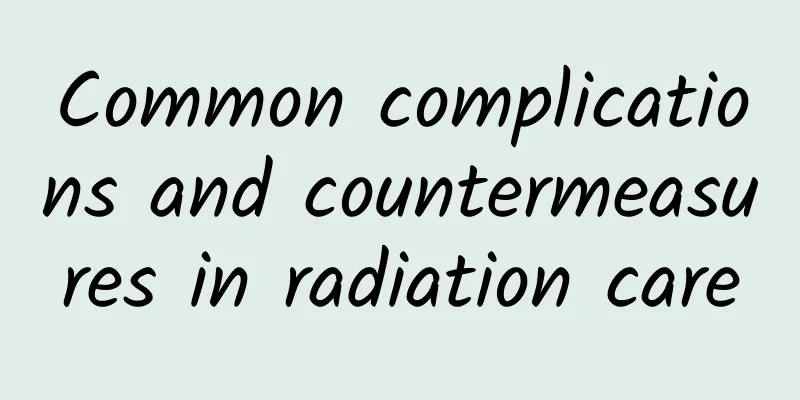Don't eat too much! The death rate of Chinese people due to "excessive consumption of this condiment" ranks first in the world

|
Editor: Sunny Morning Recently, the topic #Chinese people’s death rate due to “eating too much salt” ranks first in the world# once topped the hot search list on Weibo. Pickles, salted vegetables, salted fish, pickled beans, salted eggs, cured meat and sausages... As a country with a rich culture of gourmet food, these traditional food preservation techniques, although they have solved the problem of food shelf life to a certain extent, have also led to the formation of high-salt eating habits. According to Professor Ma Guansheng , director of the Department of Nutrition and Hygiene at the School of Public Health at Peking University, the Chinese have the highest mortality rate in the world due to excessive salt intake , and excessive salt intake has become an important factor endangering the health of Chinese residents. Other studies have shown that the more frequently salt is added to food, the higher the risk of premature death and the shorter the life expectancy . Ma Guansheng also said that the survey shows that people tend to pay more attention to controlling sugar intake, but ignore controlling salt intake. 68% of consumers are willing to control sugar intake, and 58.1% of consumers will actively request less sugar or no sugar when ordering drinks, but when ordering meals, only 31.4% of consumers will actively request merchants to use less salt and oil. At present, the current salt intake of Chinese people is 9.3 grams per day, far more than the recommended 5 grams per day . The situation of excessive salt intake in Chinese people is more serious and needs to be paid enough attention. Image from the Health Communication Branch of the Chinese Association of Preventive Medicine The main component of edible salt is sodium chloride. Wu Yan, a nutritionist at the Nutrition Department of Wuhan Union Hospital, said that sodium is a basic balancing substance for the human body. It has important functions such as regulating the volume and osmotic pressure of extracellular fluid, maintaining the acid-base balance of body fluids, maintaining normal blood pressure, and participating in the body's energy metabolism. If sodium is consumed too much, it will increase blood pressure, cause blood vessel stenosis, and damage vascular endothelial cells . In addition, eating too much salt will affect multiple organs in the body. Skin . Excessive salt will destroy the blood osmotic pressure, causing an increase in sodium ions in the body, causing water loss in the body, making the skin dehydrated, increasingly rough, and increasing wrinkles and spots. Heart . Excessive salt intake can also lead to heart disease. When the body absorbs too much sodium ions, water will also enter the cells and accumulate in the cells. This will increase the water content in the cells, which will increase the burden on the heart. Kidneys . If too much salt is consumed, the kidneys have to secrete more urine to excrete the excess salt, which increases the burden on the kidneys. Stomach . Eating high-salt, barbecued, pickled foods, etc. are all high-risk factors for gastric cancer. The high osmotic fluid in salt can damage the gastric mucosa. Brain . The "Scientific Research Report on the Dietary Guidelines for Chinese Residents (2021)" points out that high salt (sodium) intake can increase the risk of stroke. Bones . If you eat too much salt, your kidneys will excrete the excess sodium ions, but the process of excreting sodium ions will also cause the body to excrete calcium ions. The more salt you eat, the more excess sodium you excrete, and the greater your calcium consumption, which will eventually affect the need for healthy bones. If calcium is constantly lost from the body and you don't take in enough calcium, it will lead to osteoporosis. Other studies have shown that excessive salt intake can significantly affect memory and cognitive function , and this effect has nothing to do with blood pressure; excessive salt intake can also increase the risk of cancer, hypertension, diabetes and other diseases. Therefore, people with a strong taste for salt must change their cooking and eating habits, use a measured method (salt spoon) to reduce the amount of salt used, and cultivate a light taste, so that the daily salt intake does not exceed 5 grams . In particular, it is important to focus on cultivating children's awareness of light diet and develop healthy living habits from an early age. |
<<: Will cataract surgery hurt?
>>: Can the "eye protection mode" of mobile phones really protect your eyes?
Recommend
How many days does it take to be clean after the palace cleaning?
After many women have undergone abortion surgery,...
Latest! Cancer data in first-tier cities released! These 5 types of cancer are the most common, and you can prevent them like this →
Recently, the Beijing Cancer Prevention and Treat...
What to do if your breasts are sagging? How to improve sagging breasts
Women attach great importance to the appearance o...
Luotu Technology: China's smart tablet shipments reached 7.131 million units in Q3 2024, up 3.5% year-on-year
According to the latest news released by Luotu Te...
Weight loss during early pregnancy
Under normal circumstances, a woman's weight ...
Alternate feeding
Only when the exclusive breastfeeding method is c...
Will the pain last long the first time?
Because women have a hymen, they will feel pain w...
How much does it cost to induce abortion in three months?
Some pregnant women want to have an abortion afte...
What medicine can eliminate uterine fibroids?
Uterine fibroids are a benign tumor that often oc...
Women's back itching, especially at night
In daily life, skin allergies are very common. Sk...
What are cervical warts?
For female friends, it is important to prevent th...
Why do girls have black lips?
Loving beauty is everyone's nature, especiall...
What should I do if my child’s baby teeth have fallen out and no new teeth have grown?
This is the 3873rd article of Da Yi Xiao Hu Xiao ...
Can I breastfeed if I have a low fever due to mastitis?
In recent years, many women have suffered from ma...
What is the reason why women have big Adam's apples?
The Adam's apple is actually an organ in our ...









